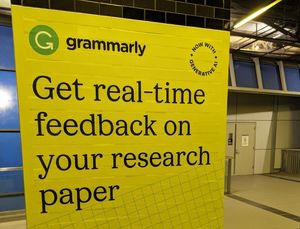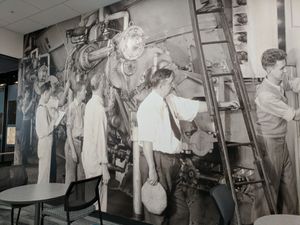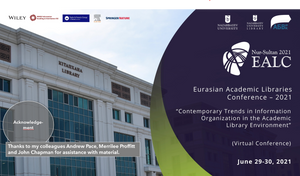Judith Pearce of the National Library of Australia has written a really good paper on the emerging shape of resource discovery and delivery, with some contribution from my OCLC Pica colleague Janifer Gatenby.
It takes a systemwide perspective: so the focus is on what we somtimes call resource sharing. I find this especially interesting as most libraries are part of one or more systems of provision, which underlie aspects of local service delivery. I believe that such systems will become more important, not less. Look for example at the current discussions surrounding off-site storage and mass digitization. In each case we are considering how a system organizes itself to achieve its goals. However, the articulation of these systems generally tends to receives less attention than local service environments.
The paper touches on many of the interests discussed in in these pages. Here are some thoughts prompted by it. I use the discover/locate/request/deliver string of verbs (Judith uses similar strings):
- We will increasingly see the discovery process separated from the location/request/delivery process. So, for example, a user may discover that something exists in a search engine or Amazon and then want to be connected through to library services. This is different than the current common presumption, where the user’s discovery experience is in the catalog.
- The end-to-end process articulation required to give a user a smooth or ‘well-seamed’ discovery-to-delivery experience is still not quite in place. Judith suggests that users will want to complete the complete workflow within the discovery interface which will require much communication of components behind the scenes.
- This in turn means that we need a robust, lightweight, widely deployed protocol infrastructure. We are not there yet 😉
- It also raises another interesting question: where should we try to work with existing complicated situations, and where should we be trying to change the service and organizational settings to facilitate new ways of working? So for example, the paper refers to an argument that I have made that we would benefit from fewer larger resources to search given the expense of Metasearch. This is a technical issue may need to be resolved by business and organizational change.
- Working in a systemwide way requires better intelligence about the system. This will be in the form of registry or directory information about entities within the system: collections, services and institutions are examples.
- Finally, I sometimes wonder what people mean by interoperability in general discussion. If you are talking about bibliographic data, then one can talk about interoperability in the context that that establishes. If you are talking about search protocols, then one can talk about interoperability within the context that that establishes. But more generally it is impossible to have a conversation without a context. That is one reason why we are seeing more interest in frameworks and models. As we expect systemwide services to play well together we need a model of the system so that we know what what components are important, what components need to talk to each other, and what is the best way for them to talk to each other. Judith mentions a couple of iniatives looking into these questions.
I have been working on a post about the catalog which touches on some of these points.
Related entries:



